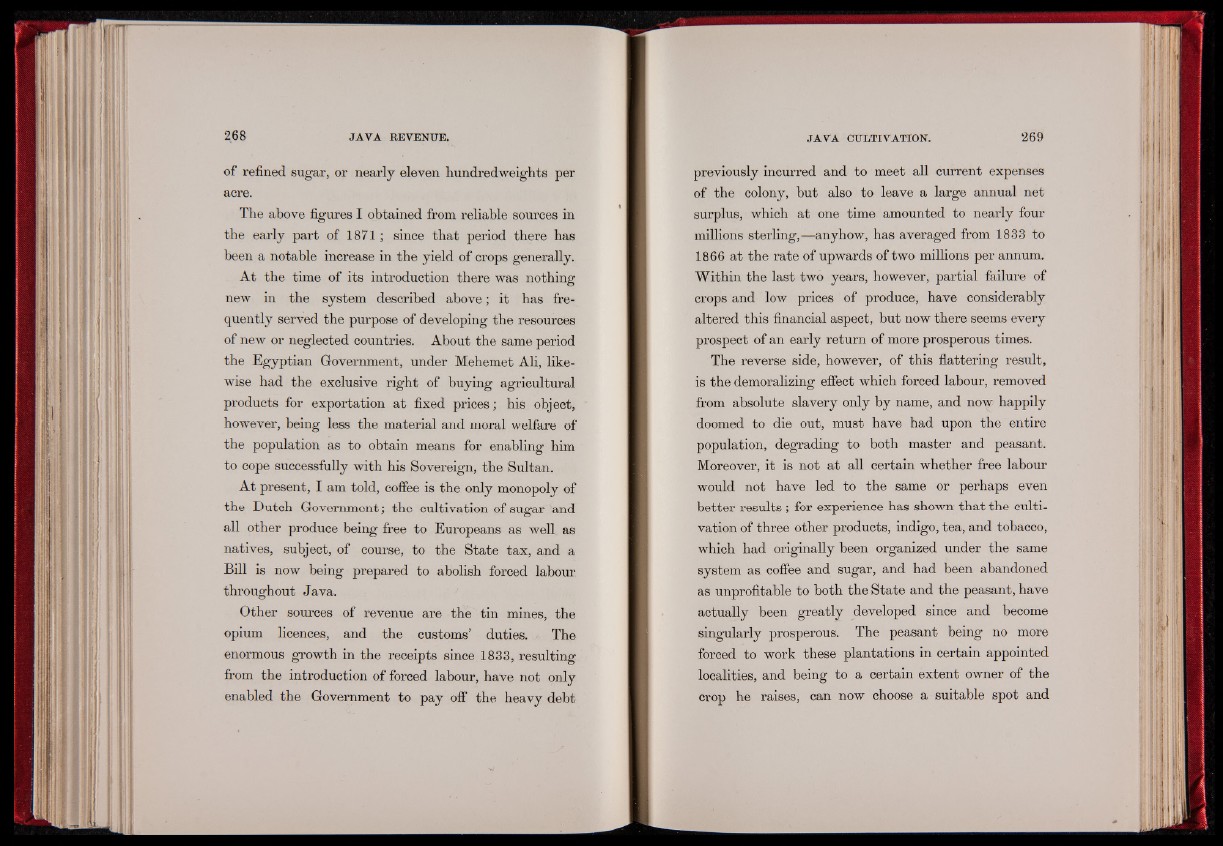
of refined sugar, or nearly eleven hundredweights per
acre.
The above figures I obtained from reliable sources in
the early part of 1871; since that period there has
been a notable increase in the yield of crops generally.
At the time of its introduction there was nothing
new in the system described above; it has frequently
served the purpose of developing the resources
of new or neglected countries. About the same period
the Egyptian Government, under Mehemet Ali, likewise
had the exclusive right of buying agricultural
products for exportation at fixed prices; his object,
however, being less the material and moral welfare of
the population as to obtain means for enabling fiim
to cope successfully with his Sovereign, the Sultan.
At present, I am told, coffee is the only monopoly of
the Dutch Government; the cultivation of sugar and
all other produce being free to Europeans as well as
natives, subject, of course, to the State tax, and a
Bill is now being prepared to abolish forced labour
throughout Java.
Other sources of revenue are the tin mines, the
opium licences, and the customs’ duties. The
enormous growth in the receipts since 1833, resulting
from the introduction of forced labour, have not only
enabled the Government to pay off the heavy debt
previously incurred and to meet all current expenses
of the colony, but also to leave a large annual net
surplus, which at one time amounted to nearly four
millions sterling,—anyhow, has averaged from 1833 to
1866 at the rate of upwards of two millions per annum.
Within the last two years, however, partial failure of
crops and low prices of produce, have considerably
altered this financial aspect, but now there seems every
prospect of an early return of more prosperous times.
The reverse side, however, of this flattering result,
is the demoralizing effect which forced labour, removed
from absolute slavery only by name, and now happily
doomed to die out, must have had upon the entire
population, degrading to both master and peasant.
Moreover, it is not at all certain whether free labour
would not have led to the same or perhaps even
better results ; for experience has shown that the cultivation
of three other products, indigo, tea, and tobacco,
which had originally been organized under the same
system as coffee and sugar, and had been abandoned
as unprofitable to both the State and the peasant, have
actually been greatly developed since and become
singularly prosperous. The peasant being no more
forced to work these plantations in certain appointed
localities, and being to a certain extent owner of the
crop he raises, can now choose a suitable spot and